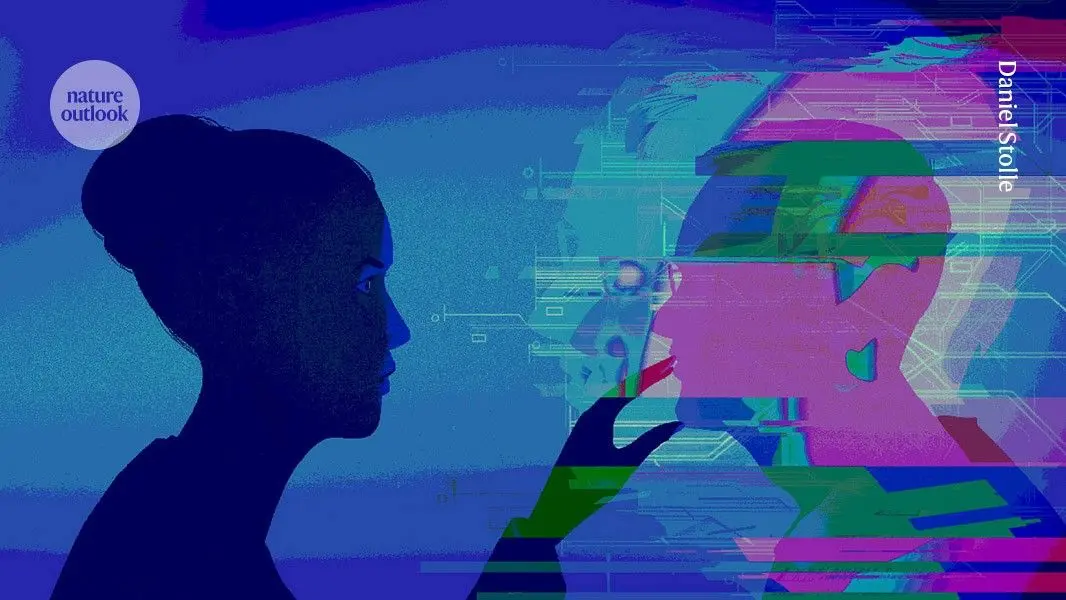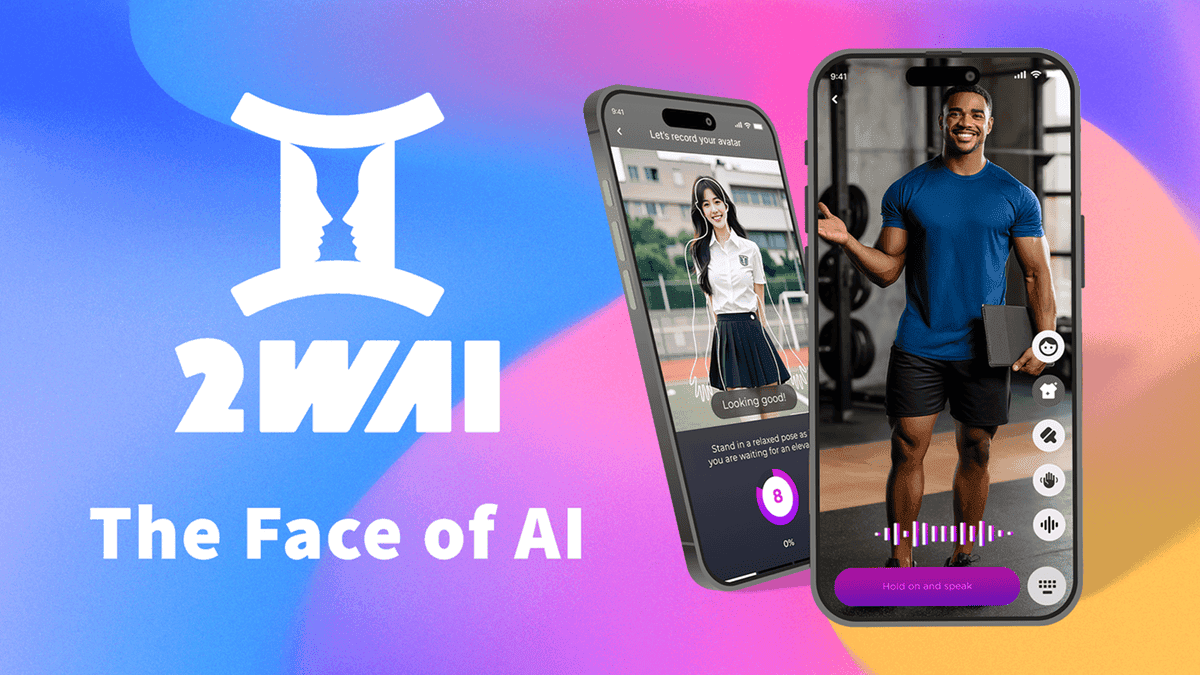AI's Ethical Dilemma: The Rise of Digital Afterlife Services
2 Sources
2 Sources
[1]
Eternal You review - it's impossible not to be horrified by this AI quest to bring the dead back to life
This world-tilting Storyville documentary examines an industry dedicated to creating realistic avatars of loved ones, so the bereaved can communicate with them. It's beautifully balanced - and highly alarming All that work, all that talent, all that incredible brain and computing power, and it's being concentrated on providing the world with nothing more than a higher, more powerfully terrible form of that old fortune teller's skill, cold reading - extrapolating from a person's tiniest behavioural clues to produce apparently unknowable information about them. Eternal You is a 100-minute dive into the cold and murky waters of the digital afterlife industry. To those of you blessedly unfamiliar with this phenomenon - as I was before I watched this world-tilting, mind-galvanising film - there are companies dedicated to using AI to create convincing avatars of dead people. The whole of internetted human history is crunched, including whatever digital footprint left by the deceased, plus whatever details the bereaved care to add and then, for a small sum, loved ones can communicate once again with the departed. Joshua Barbeau is a user of one such company, Project December. He uses it to talk to his fiancee, Jessica, whose life-support machine he had to turn off and whose hand he held as she died. Christi Angel uses the service to talk to her beloved partner, Cameroun, to whose last text she was too busy to respond before he fell into a coma from which he never emerged. Stephenie Oney is a user of HereAfter.ai and gathers her family to engage in voice-synthesised conversation with her late father, Bill. She thinks it will give his grandchildren a better sense of who he was than photos or home videos can. Woven in and out of their experiences are the comments and opinions of those for and against the current direction of this AI travel. Eternal You is soberly directed by Hans Block and Moritz Riesewieck and beautifully balanced, looking at the motivations of users and creators, at the influence of the money involved, plus what the individual and collective pros and cons could be. It tackles the responsibilities of creators and legislators to protect us and circumscribe this digital project rather than pursue every possibility to its very end, and whether anything in human history should give us faith that this might happen. And yet it is impossible not to be horrified by the whole thing. It is impossible not to notice the expansive understanding of humanity emanating from critics such as Sherry Turkle and Carl Öhman compared with the flippant demeanour of most of the tech bros and others behind the development of the technology. With special mention going to the founder of Project December, Jason Rohrer, whose wife had the idea before he did but didn't tell him because, he laughs: "She thought it shouldn't be done, or something." Rohrer laughs his way dismissively, too, through Angel's distress after AI Cameroun tells her he is in hell. "I've got some bad news for her - in my opinion ... her whole belief system [Christianity] is flawed." It is not his job, Rohrer insists, to keep warning people not to buy into the illusion: "That doesn't make for a good experience." And, the thought hangs unspoken in the air - a good experience is what people pay for. It is impossible not to note that most of the users interviewed have been bereaved in a particularly traumatic way, and that they are therefore among the most vulnerable of an already vulnerable group. None more so, perhaps, than Jang Ji-sung, whose seven year old daughter, Nayeon, died suddenly - her mother's last words were to tell her off for kicking the bed, not realising she was doing so in the throes of extreme pain. "I couldn't say goodbye." The people at a VR company recreate her daughter as a visible, speaking figure her mother can see via a headset. It is broadcast on Korean TV in a documentary called Meeting You. The sight of her arms reaching out into the empty air to try to touch the child is something it is hard to believe we were ever meant to see. The producers watch from above, trying to decide on an appropriate soundtrack and wishing Jang didn't look so "dreary". Afterwards, Jang says her guilt lifted a little. But that Nayeon never comes to her in her dreams any more. Eternal You is a film about many things. At one level, it's about technological innovation, brilliant minds, practical and legislative conundrums, the best and worst of free-market capitalism. At another, even perhaps for people of a naturally less luddite bent than myself, it is about the eternal exploitation of the desperate by the greedy, cruel or unthinking. It's also about the opening up of an abyss of horrors masquerading as answers to unbearable longings, into which some people will willingly jump, others will fall, and over whose edge all of humanity will eventually be dragged, kicking, screaming, but with no other choice. It is about the death of grace, the death perhaps of the meaning of life itself.
[2]
Storyville: Eternal You, review: thought-provoking dive into the creepy digital-afterlife business
Would you like to speak to your loved ones after they die? Perhaps you already do. Many of us hold imaginary conversations with people who are no longer here. But what I mean is: would you like them to speak back? Thanks to AI, this is already possible. Numerous companies offer the "digital afterlife" service, as documented in Storyville: Eternal You (BBC Four). The results are so creepy that I half-expected a note before the end credits telling me that this had been a bit of Black Mirror-style science fiction. But it's really happening. And the problem is that some of the people running these companies care very little about the ethics of it all. You give these companies access to emails, texts and voice messages from your loved one. Or you can hand over your own data before you die. Via machine learning, a bot can then reply to questions in the style of the deceased person. Depending on the company, you either end up with a ChatGPT-style text conversation, or a voice simulation. The bereaved people featured here find comfort in this. Once you've got over the sci-fi weirdness, it throws up some fascinating questions about our attitudes to death. Are the people signing up for these services refusing to accept the reality of loss, or is this a valid way of grieving? The film featured an almost unbearable scene of a Korean mother interacting, via a virtual reality headset, with a digital avatar of her seven-year-old daughter. "Mummy missed you so much," she sobs. It is awful to watch, yet months later the woman feels lighter and is no longer plagued by bad dreams. Is this providing a meaningful service, or exploiting the grief-stricken? The tech giants are not part of it yet, although one observer said that they soon will be if they smell that there's money to be made. Instead, the business is populated by small operators. One CEO (who describes his business as "posthumous communication") said that eventually you will be able to have a virtual dead relative sitting at the table with you and chatting over a meal. After watching this documentary, you will think this doesn't seem so far-fetched.
Share
Share
Copy Link
A deep dive into the emerging industry of AI-powered digital afterlife services, exploring the ethical implications, user experiences, and potential future developments.

The Emergence of Digital Afterlife Services
In a world where technology continues to push boundaries, a new and controversial industry has emerged: digital afterlife services. These AI-powered platforms aim to create realistic avatars of deceased individuals, allowing bereaved loved ones to communicate with them posthumously
1
2
.How It Works
Companies in this sector utilize artificial intelligence to process vast amounts of data, including the digital footprint left by the deceased and additional information provided by their families. This data is then used to create convincing digital representations that can engage in text-based or voice-simulated conversations
2
.User Experiences
The documentary "Eternal You" explores several user experiences:
- Joshua Barbeau uses Project December to communicate with his late fiancee, Jessica.
- Christi Angel interacts with her deceased partner, Cameroun, through the same service.
- Stephenie Oney employs HereAfter.ai to enable her family to have voice-synthesized conversations with her late father, Bill
1
.
Ethical Concerns and Criticisms
While some users find comfort in these services, the technology raises significant ethical concerns:
- Exploitation of the vulnerable: Critics argue that the industry preys on those who have experienced traumatic bereavements
1
. - Psychological impact: There are questions about whether these services hinder the natural grieving process or provide genuine healing
2
. - Lack of ethical consideration: Some company founders, like Jason Rohrer of Project December, have been criticized for their dismissive attitude towards potential negative consequences
1
.
The Future of Digital Afterlife
As the technology advances, some predict more immersive experiences:
- Virtual reality interactions: A Korean mother's experience with a VR avatar of her deceased daughter hints at future possibilities
1
2
. - Integrated experiences: One CEO envisions virtual deceased relatives participating in family meals
2
.
Related Stories
Industry Landscape and Potential Growth
Currently, the digital afterlife sector consists mainly of small operators. However, experts anticipate that major tech companies may enter the market if it proves profitable
2
.Regulatory and Ethical Challenges
The rapid development of this technology outpaces current regulations, raising questions about:
- User protection: How can vulnerable individuals be safeguarded from potential exploitation?
- Data privacy: What are the implications of using a deceased person's digital footprint?
- Consent: How can consent be obtained for posthumous representation?
As AI continues to evolve, the digital afterlife industry serves as a stark reminder of the need for careful consideration of the ethical implications of technological advancements in our increasingly digital world.
References
Summarized by
Navi
[1]
Related Stories
Recent Highlights
1
Google Gemini 3.1 Pro doubles reasoning score, beats rivals in key AI benchmarks
Technology

2
ByteDance's Seedance 2.0 AI video generator triggers copyright infringement battle with Hollywood
Policy and Regulation

3
ChatGPT cracks decades-old gluon amplitude puzzle, marking AI's first major theoretical physics win
Science and Research








